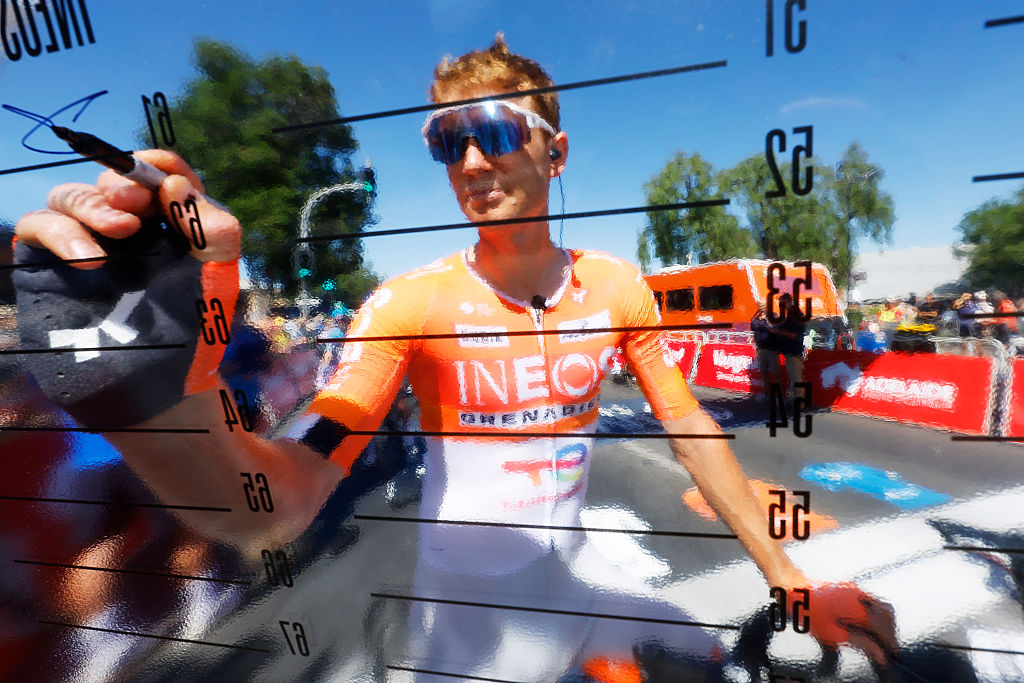'I don’t feel satisfied' – Sarah Roy closes her 13-year career with unreached dreams but plenty to reflect on
Thirty-nine-year-old speaks to Cyclingnews about missing out on Classics glory, how much the sport has changed throughout her career, and post-career hiking plans
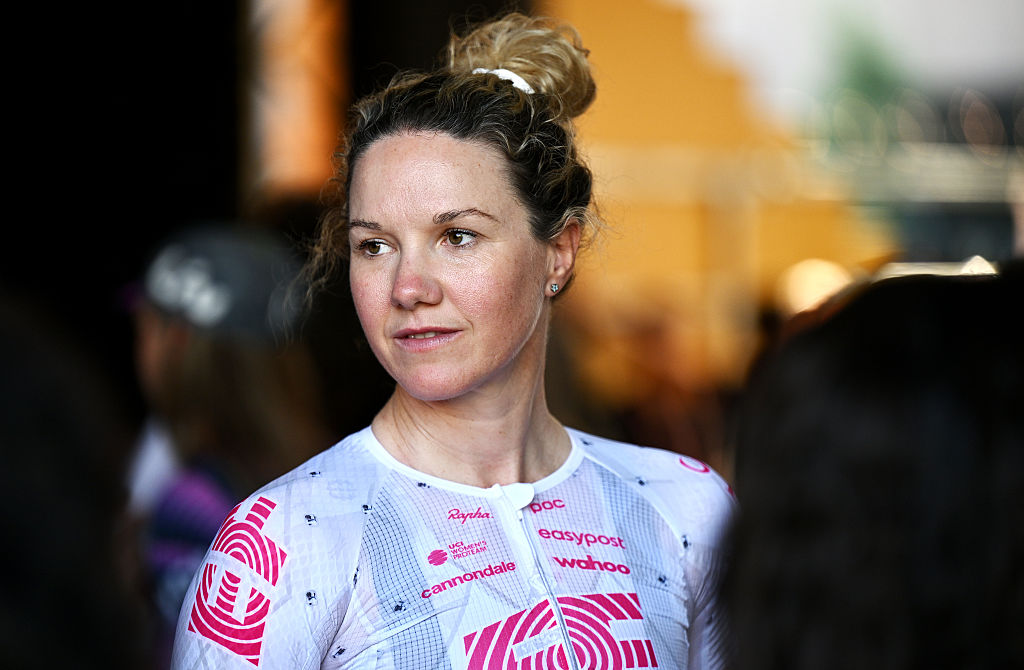
The latest race content, interviews, features, reviews and expert buying guides, direct to your inbox!
You are now subscribed
Your newsletter sign-up was successful
Not every cyclist finishes their time in the peloton having achieved everything they wanted to. For Sarah Roy, a 13-year professional cycling career, in which she raced more than 57,000 kilometres in pursuit of her biggest dreams, is over.
Despite becoming one of the most respected riders in the peloton since making the move from Australia to Europe in 2013, Roy leaves the sport with her dreams unfulfilled and a feeling of dissatisfaction.
Time waits for no-one, and turning 40 in February, Roy, who finished her career with EF Education-Oatly, felt that this was the correct time to bring her career to a close.
"The way that I look at my career at the moment is I'm really disappointed," Roy tells Cyclingnews over a video call a few weeks after her final race at the Simac Ladies Tour.
"I can be proud of a lot of things, but I really wanted to do certain things and I just didn't tick those off and to now think I just don't get another chance…and to really feel such finality with something is sad and just a bit of an empty feeling. I don't feel satisfied, so it's disappointing."
Roy hoped to represent Australia at the Olympics during her career, but narrowly missed selection for both the Tokyo and Paris Games. She also spent her career obsessed with the cobbles and hoped that one day she would have lifted her hands at the end of a major Classic.
The Hell of the North, Paris-Roubaix, was a race that particularly transfixed Roy since the women’s race was launched in 2021. Those haunted cobbles require skill and power to carve out a chance of victory, but also a hefty slice of luck.
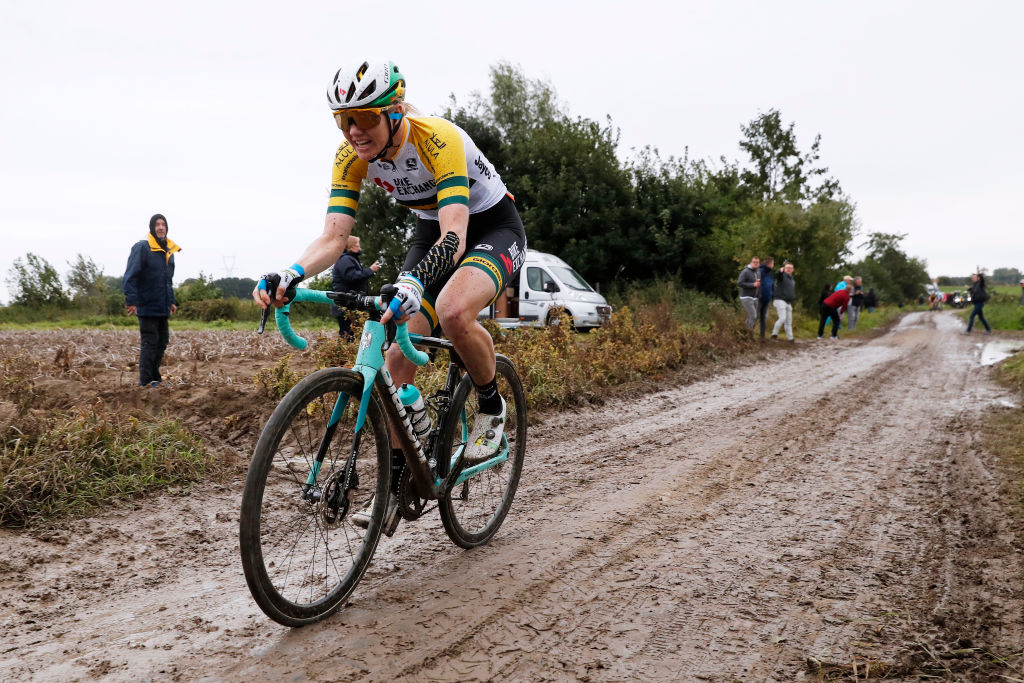
"I was really chasing the Classics every year and I wanted to be in the best shape possible for that. The thing is there is so much luck needed there," she says.
"This year in Roubaix, for example, I couldn't have been any more fit or done any better leading into the first sectors. Then just on a normal section of road between the sectors, I just got taken out from behind…and then my chain's come off and just in the time that it took for me to put my chain back on, there was another crash and on the next sector and I was caught behind. Then that's just your race over and there's 45k to go."
"So what could I have done? It's so out of your control. I’m devastated that I won't get another shot because of course I love these races," Roy says.
'I had to really almost force my career'
Having started life in Sydney, Roy’s first sporting pursuit was in gymnastics before moving onto triathlon and finally road cycling, making the move to Europe and the professional peloton in 2013 at the age of 27. Roy first signed for Dutch UCI team Futurumshop.nl and had a successful seven-year stint with the team now known as Liv-AlUla-Jayco before racing for Canyon-SRAM, Cofidis and finally EF Education-Oatly in her final year.
For every Australian cyclist, and any rider from outside of Europe, the transition to the professional peloton can be a challenging one as they pull themselves away from family and the comfort of familiar surroundings. The financial hurdles can be difficult too, especially before the surge in professionalism that women’s cycling has experienced over the last decade.
Roy feels as though this struggle to establish herself and remain professional for as long as she did eventually took its toll.
"I had to really almost force my career, it wasn't an easy pathway for me. I didn't have a lot of support in becoming professional," Roy recalls.
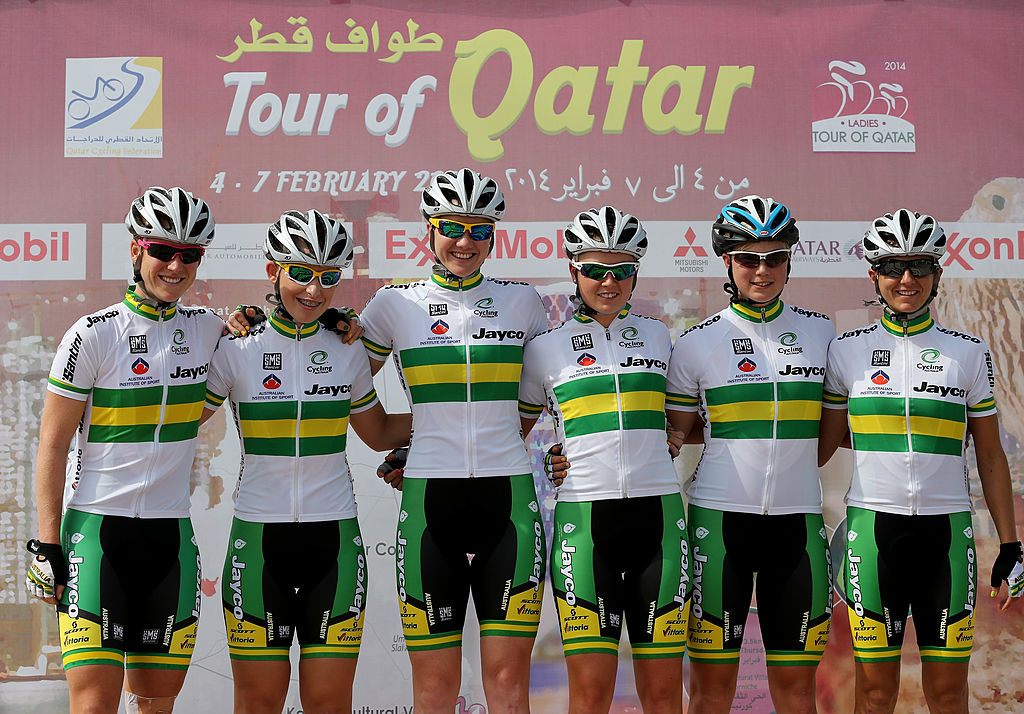
"So because it's been a bit of this independent journey, it's tiring. I'm not isolated, but to be able to do something alone takes so much energy; physically, mentally, emotionally, and that's your focus. So actually, I found that I didn't have much capacity left to do anything else such as meet people or be more social or have other hobbies or pursue other interests, so then it's just become a bit too all-consuming to be a cyclist for the other things that I want to achieve in life too."
Roy also looks back at difficult times in her career, such as when she underwent surgery for iliac artery endofibrosis back in 2020, a condition she unknowingly lived with for several years.
The former Australian national champion is proud to have overcome these setbacks and looks back particularly fondly on her first WorldTour win at the Women's Tour in Britain in 2017, one of eight UCI victories in her career.
"In the Tour of Britain I didn't know at the time that I had the iliac artery condition, but I was suffering. You'd have good days and bad days and that's why it was so unexplainable and hard to diagnose," Roy recalls.
"I was on a really bad day that day and I was fully dropped in the first 20 kilometres of the race. I remember going up to one of my teammates and saying ‘you're riding really well today, this is for you, you should go and try and get in a break’. I was really encouraging her because I was not good. Then I tried to set her up in a move and I think I followed a move and I ended up in a break and then my legs actually came good. I rode into the race and I just felt like a million dollars.
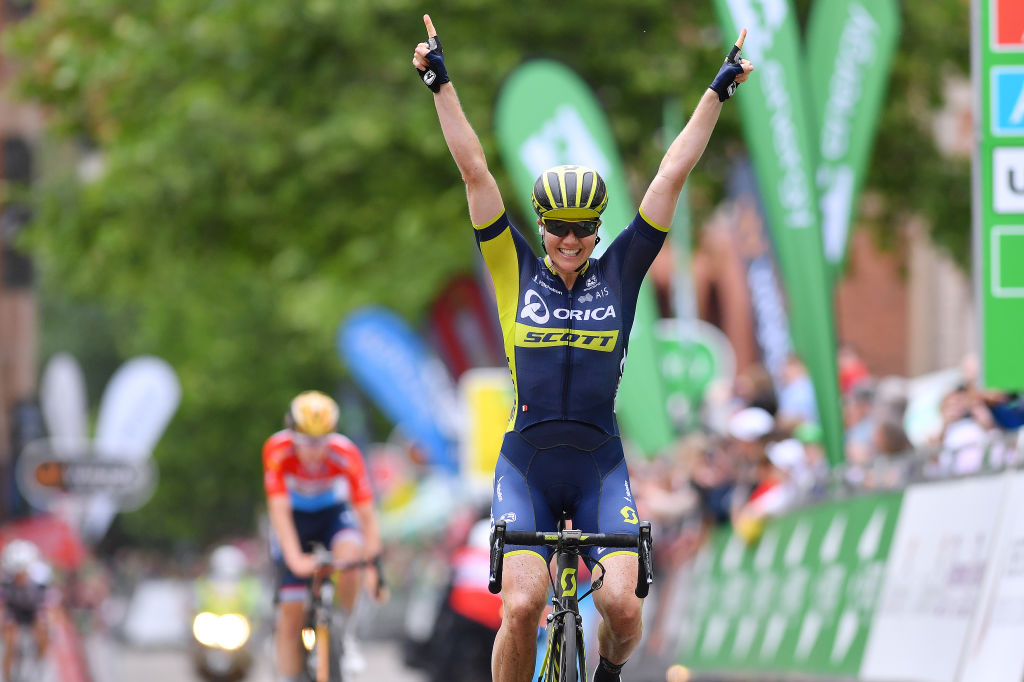
"I remember to get through that time with the iliac condition I really had to find ways to become way more efficient. I changed my cadence and tried to be really aero on the bike all the time and save energy wherever I could. So I became pretty smart in that way to save myself. So I felt like I rode that race really smart in the end once I was in the break and I was stoked to win.
"Winning is cool, but when you've had to overcome something it makes it more memorable."
A transformed sport
Since Roy entered the sport 13 years ago, women’s cycling has changed immeasurably; a minimum wage requirement has made cycling a viable full-time career for women, the inauguration of the Tour de France Femmes avec Zwift and Women’s WorldTour has contributed more eyes to the sport than ever before, and the depth of talent on display in the peloton has reshaped how races are played out.
Although not that long ago, Roy remembers a lack of technological support in her first year in Europe. It’s almost unthinkable today, but she would have to resort to older methods of navigation for her training rides at that time and didn’t have the data to inform her training that the professionals do now.
According to Roy, the gap between the best and the rest has also shortened dramatically. Races which would have been massively selective a decade ago now have more than twice the number of riders fighting out the finale.
"It's a viable career now. You don't have to be a top-tier winner to earn a really good wage," Roy reflects, while also recognising that there is still work to be done to bolster the levels below the WorldTour.
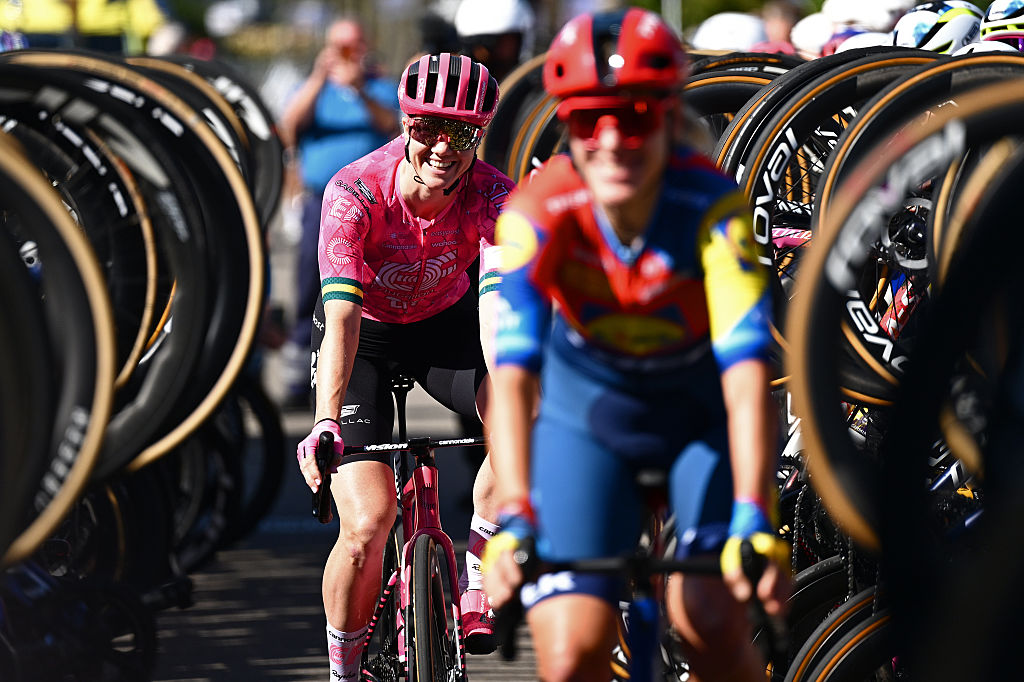
"All the actual bike technology and everything has changed so much too. When I started, I didn't have a power meter. My whole first year professional I raced with no power meter and I didn't have a GPS, so a lot of my training was out and back because I'd just get lost. I would actually take a paper map in my pocket.
"There's more depth too. I think the gap between the top riders and the rest of the peloton is a lot smaller and so when [the top riders] make it hard they can't actually sustain it and the group comes back again," she says, adding that more riders in the peloton at the finish of races has also meant more crashes and more injuries.
While women’s cycling has undoubtedly developed and working conditions have become better for riders and staff, Roy argues that it has also had a negative cultural effect on the peloton.
Increasingly as it has professionalised, cycling has become focused on performance. While that’s perhaps obvious for elite sport, Roy suggests that the peloton has lost its personal touch and she has latterly felt more like a number than a human being and at times hasn’t been given sufficient support. While the performance level is climbing, teams are failing in their care for athletes, in her assessment.
"It's human performance," Roy says. "So how do you get the human to perform? You need to talk to them, you need to relate to them, you need to have a relationship with them. They're not robots at the end of the day… I think some teams, they come with these ideas that that's what they stand for and value, but the execution is not there at all.
"I think back when I started it was a bit more [supportive] because there was next to no money in women's cycling, even the staff were also not being paid well and conditions were tough and everyone was working so hard, so you actually spent more time with the staff as a rider and the relationships were a bit more close and family-like. You lived, trained, travelled and raced with your teammates and staff and so it did feel more like a family, whereas that aspect is definitely not a part of the sport anymore."
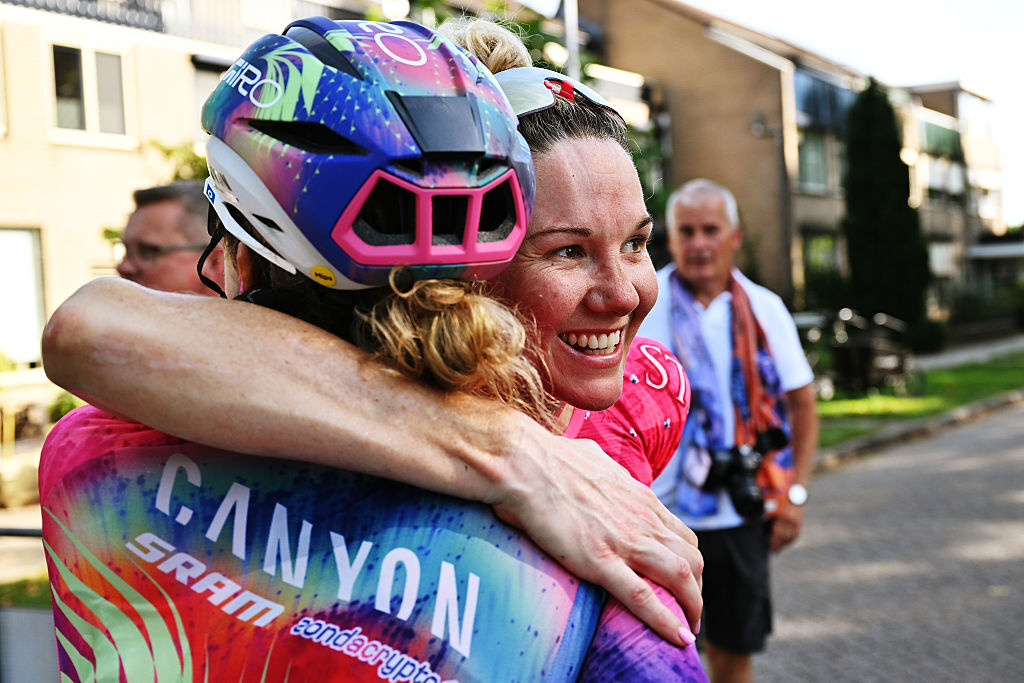
What’s next for Roy? She would like to support athletes who are going through similar experiences as her, but hasn’t yet worked out the next steps. For now, on the agenda are several hiking trips to Machu Picchu and other locations around the world.
While initially Roy didn’t want to touch her bike after her final race, she has donned her lycra several times in the last few weeks. Her main focus right now is to decompress from the life of an elite sportsperson and take some time to process before she jumps into the next phase of life.
"I need a break from all of that insane stress," she says. "Being an elite athlete is stressful. I think in some ways I feel a bit guilty but I need to give myself permission and tell myself that I deserve a bit of a break. I've had some advice from athletes that have retired too and they told me don't go straight into something, give yourself a year."
Dan is a freelance cycling journalist who has written for Cyclingnews since 2023 alongside other work with Cycling Weekly, Rouleur and Escape Collective. Dan focuses much of his work on professional cycling beyond its traditional European heartlands and writes a regular Substack called Global Peloton.
You must confirm your public display name before commenting
Please logout and then login again, you will then be prompted to enter your display name.
